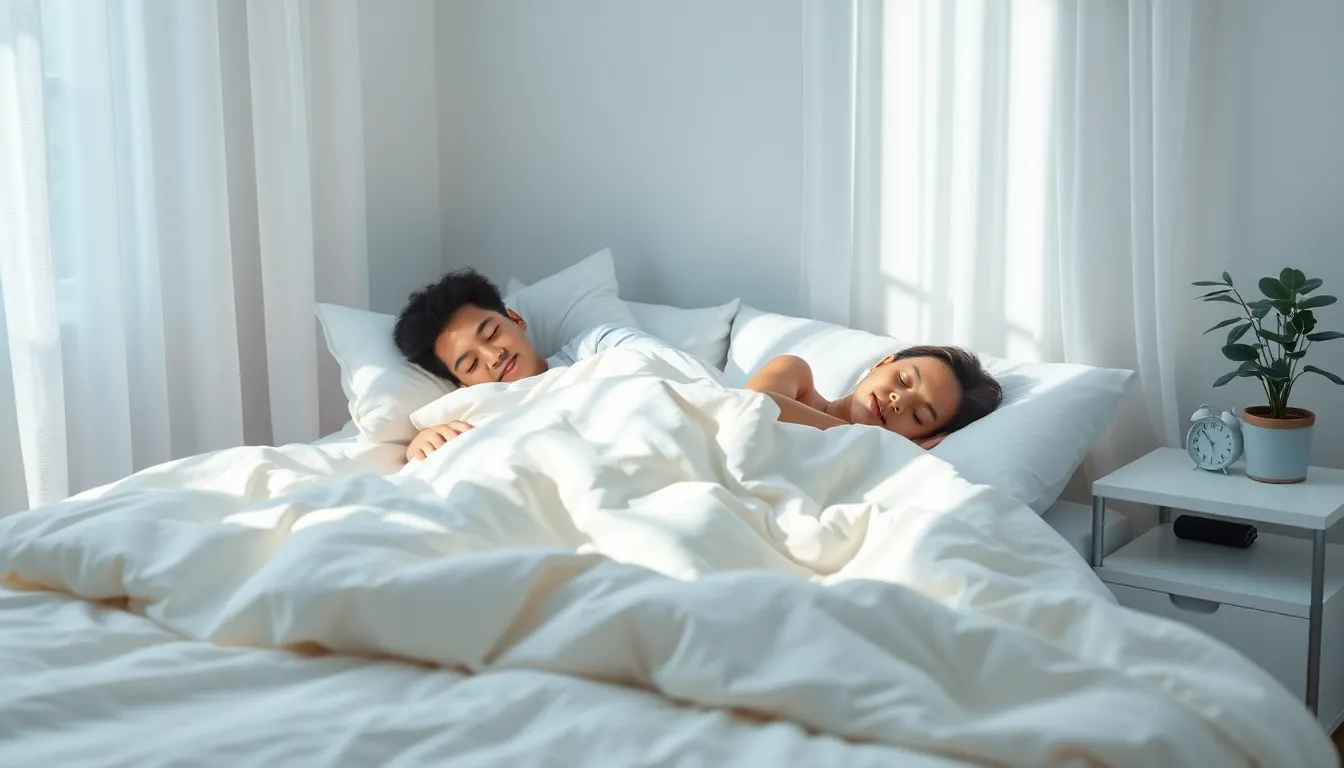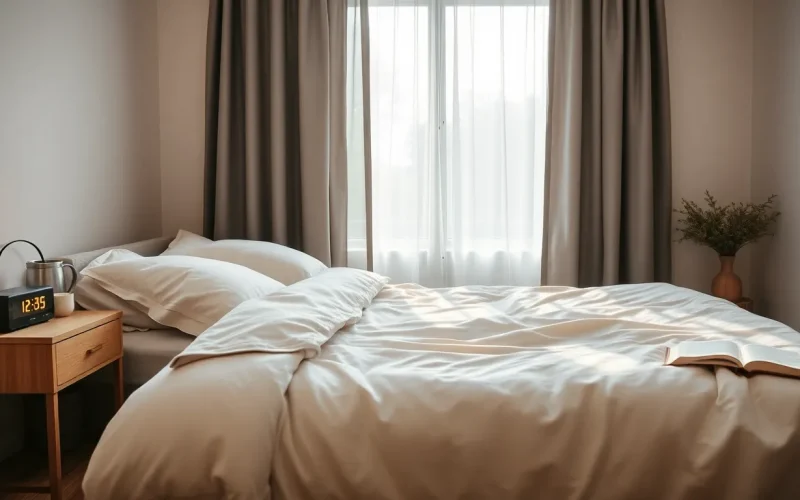Table of Contents
ToggleImagine drifting off to sleep like you’re floating on a cloud, with not a care in the world. Peacefully sleeping isn’t just a dreamy concept: it’s a vital cornerstone of a healthy life. In a world peppered with daily stressors, mastering the art of sleep can seem daunting. But don’t worry. Whether you’re a restless night owl or someone who simply craves deeper tranquility, this guide breaks down everything you need to create your perfect sleep sanctuary. Get ready to transform those toss-and-turn nights into blissful slumbers.
The Importance Of Peaceful Sleep

Health Benefits Of Quality Sleep
Quality sleep is far from a luxury: it’s an essential pillar of good health. When individuals consistently sleep well, they bolster their immune systems, helping them fend off illnesses. Also, restful sleep plays a significant role in weight management and even boosts metabolism. But that’s just the tip of the iceberg. A well-rested body enhances physical performance, making everyday activities feel like a breeze.
Mental Well-Being And Sleep
Sleep isn’t just beneficial for the body: it’s crucial for mental clarity as well. Those peaceful nights help improve concentration, creativity, and problem-solving skills, allowing individuals to tackle complex tasks with finesse. Besides, regular, uninterrupted sleep can significantly reduce stress levels and is linked to healthier emotional regulation. In essence, quality sleep is the secret weapon for a well-balanced mind.
Creating A Sleep-Friendly Environment
Optimizing Your Bedroom For Sleep
The right bedroom setup can be a game changer for transforming restless nights. Decluttering the space allows for a calming vibe, while choosing soft, soothing colors can foster a serene atmosphere. The mattress and pillows deserve special attention too. Investing in comfortable bedding can do wonders for aligning with one’s preferred sleeping position.
The Role Of Light And Sound
Light and sound play integral roles in the sleep quality equation. Dimming lights an hour before bedtime signals the body to prepare for sleep. Consider blackout curtains as a method to minimize external light disturbances. As for sound, soothing white noise or relaxing melodies can mask jarring disturbances, lulling individuals into a more peaceful slumber.
Establishing A Relaxing Bedtime Routine
Techniques To Wind Down Before Sleep
Setting aside time each evening for winding down signals the body it’s time to switch gears. Gentle stretching, light reading, or even sipping herbal tea can signal the transition from the hustle and bustle of the day to a peaceful night. Avoiding screens at least an hour before bed allows natural melatonin levels to rise, paving the way for deeper sleep.
Mindfulness And Relaxation Practices
Practicing mindfulness may enhance the journey to peaceful sleep. Techniques like meditation and deep breathing exercises help calm the mind and reduce anxiety. Even a five-minute mindfulness exercise before bed can significantly shift the overall experience, guiding one toward calmness.
Common Sleep Disruptors And How To Address Them
Identifying Your Sleep Obstacles
Knowing what disrupts sleep is half the battle. Common culprits range from caffeine consumption to emotional stressors. Tracking sleep patterns can highlight recurring issues and pave the way for better sleep hygiene practices.
Tips To Overcome Sleep Challenges
Addressing sleep challenges can be straightforward once the obstacles are identified. For instance, limiting caffeine intake suggests a simple lifestyle shift. Implementing relaxation strategies, like journaling, can help offload daily stressors before bedtime, creating a more tranquil state of mind.
When To Seek Professional Help
Signs You Might Need A Sleep Specialist
Not every sleep issue can be resolved with home remedies. Signs indicating it might be time to consult a professional include persistent insomnia, excessive daytime sleepiness, or noticeable sleep apnea symptoms such as snoring. These warnings shouldn’t be brushed off, they signal that independent solutions may not suffice.
Understanding Sleep Disorders
There are various sleep disorders that could hinder restful sleep, ranging from insomnia to restless leg syndrome. Understanding these conditions can empower individuals to seek appropriate help, ensuring they receive tailored advice and treatment plans. A good night’s sleep can be a realistic goal with the right support.





